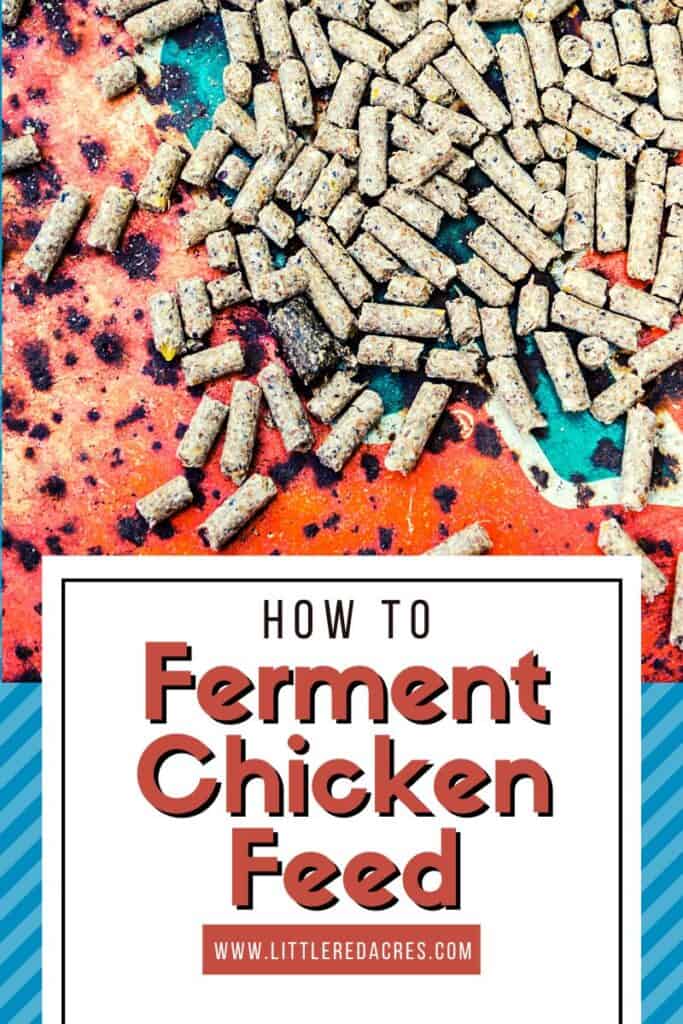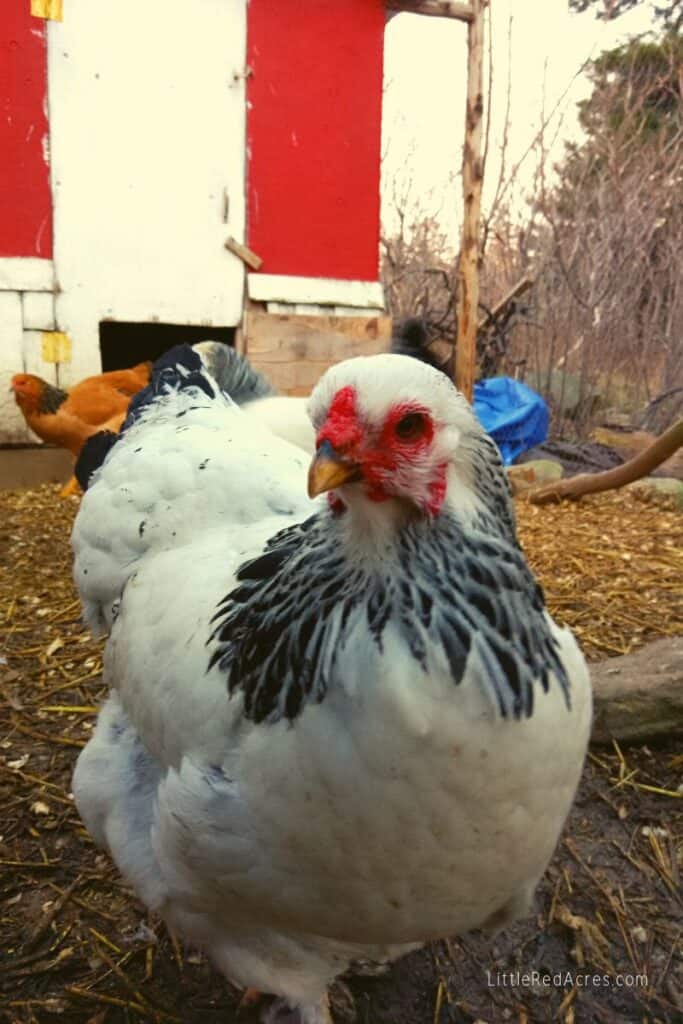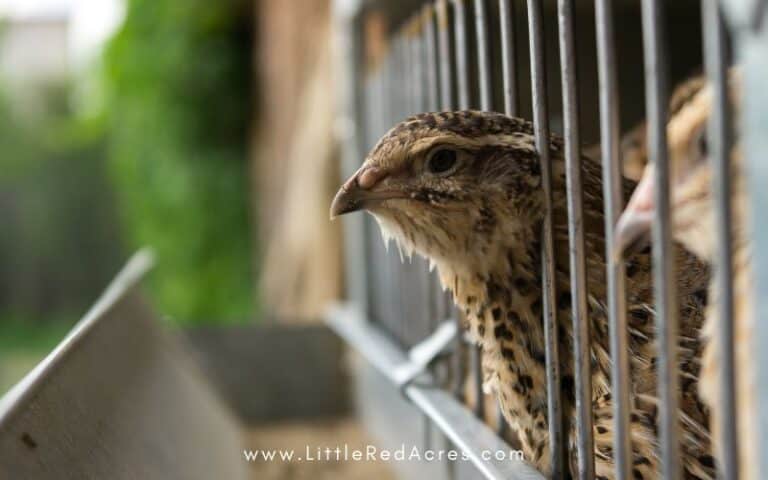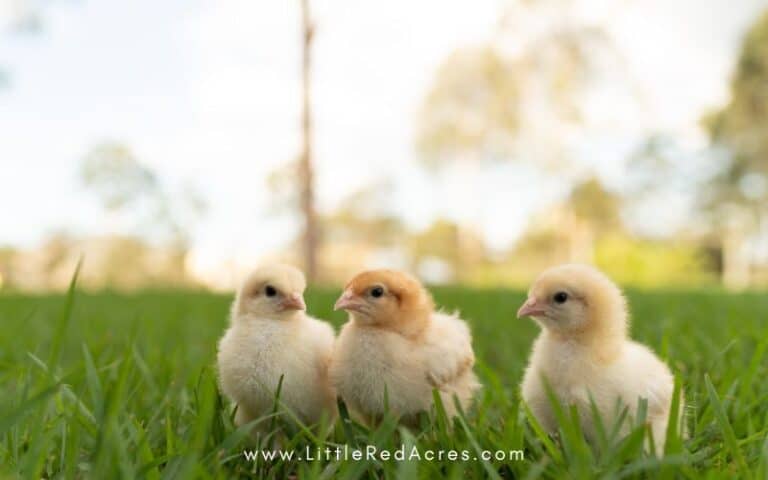How to Ferment Chicken Feed
Inside: Maybe you want to try to ferment chicken feed for even better feed for your chickens. Better for their health, and better for your budget.
Have you tried soaking chicken feed? Maybe you want to try to ferment chicken feed for even better feed for your chickens. I will talk about how to do it on your homestead to give your birds a great meal and to help stretch your feed budget.

This post may contain affiliate links, see my disclosure policy for more information.
How to Ferment Chicken Feed
You know about good intentions and all that right? Well, that's where I stand with fermenting chicken feed. I want to do it. And I'll probably give it another try but right now I'm not there and soaking feed is working great. Not everyone has time to add to their daily chores and that's fine.
Get updates & freebies delivered to your inbox!
Why Feed Ferment Chicken Feed?
The first thing is, why bother doing it?
It can help improve their digestion, absorption of nutrients, and overall health by adding probiotics to their diet.
It is a very efficient way to feed your flock! Fermenting chicken feed can reduce the number of grains needed to keep your flock full – cutting costs for you.
Last but not least, it can even lead to better egg quality!

Steps to Making Fermented Chicken Feed
You can ferment crumble, pellets, or whole grain chicken feed – including chick starter! We’ve found that whole grain feed holds up the best, as the others expand more and get a bit mushy.
Step 1: Mix Feed & Water
Find a suitable container to ferment the feed in. Great examples include a large glass jar, bowl, or bucket. Because fermentation makes the feed slightly acidic, it is best to choose glass, ceramic, or BPA-free plastic.
It should be large enough to hold a day or two worth of feed for your flock, plus extra room for water, stirring, and expansion.
Add enough chicken feed to the container for one or two daily servings for your flock.
Pour water over the top of the feed. Add enough so that the feed is fully submerged and has a couple of inches of room to expand.
The Getting Started with Homesteading eBook Bundle is perfect for those who want to start living a more sustainable, self-sufficient lifestyle. With this bundle, you’ll get five eBooks that cover topics like gardening, raising chickens, gardening, and more.
Step 2: Let It Ferment
Cover the top of the container with a loose-fitting lid, plate, or another makeshift lid. It doesn’t need to be airtight! The idea is to prevent drifting mold spores from floating in, but also allow the fermentation gasses to escape.
Set the container in a location with moderate temperatures for three to four days to ferment.
Check and stir it each day. Add additional water if the feed has absorbed it all.
By day or two or three, you should see small bubbles on the surface and/or within the feed mixture.
It should smell slightly tangy, sour, and sweet – similar to yogurt or yeast.
Add a tablespoon of unpasteurized apple cider vinegar (for every gallon of fermented feed) and let the acetic acid in the vinegar digest the alcohol and yeasts, thereby bringing everything back in balance.
While fermented chicken feed will be effectively preserved (due to the low pH) and safe to consume beyond day three or four, it gets sourer the longer it sits. Therefore, it can become less desirable for your spoiled chicken’s taste buds.

Benefits of Fermented Feed for Chickens
- It increases beneficial bacteria in their guts
- It also decreases pathogens in your hens’ digestive systems
- Makes protein more available
- Requires less feed per serving (one of my fave reasons)
- Increases water intake as water is consumed with the feed
- Improves digestibility of feed and nutrient absorption
There really isn't much to making fermented chicken feed. It does require an extra step to your day and if you are already struggling with the day-to-day don't feel like you have to do it.
Frequently Asked Questions About Fermented Chicken Feed
Should I ferment my chicken feed? Fermenting chicken feed makes nutrients more readily available, feed requirements lessened, and less waste since the chickens love it.
Can chickens eat fermented feed every day? You can use it simply as a tasty, healthy treat for your flock, you can make it strictly their diet for the entire day, or you can do a combination.

Want More?
Does Raising Chickens Save Money?






